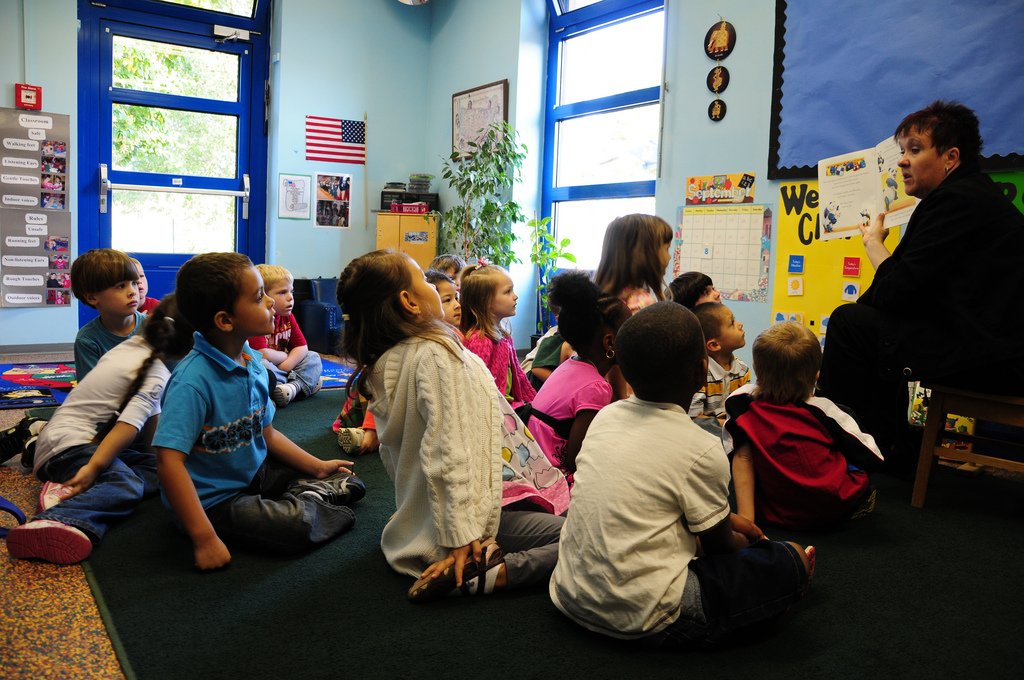By Jess Feldman
Capital News Service
The state’s income threshold for families to qualify for free pre-kindergarten should be increased by more than 60%, a state workgroup told a legislative panel Tuesday.
The Joint Committee on Children, Youth and Families, weighing universal schooling for 4-year-olds acknowledged, the need for an increase in funding for the early education program statewide. Maryland’s Kirwan Commission on Innovation and Excellence in Education has also tentatively agreed to recommend universal pre-K.
A workgroup formed to study universal access to pre-kindergarten was charged in April with presenting a report to the governor and the General Assembly by December.
The state’s education department, presenting the workgroup’s findings, told the panel that universal, high quality, full-day pre-kindergarten should be accessible to all 4-year-old children through a variety of programs and providers with a combination of public and private funding.
The legislative committee also took into account a report published in January 2016 by Augenblick, Palaich and Associates, a consulting firm in Colorado, that highlighted the need to offer more access to prekindergarten in Maryland and increase the number of high-quality spots available to serve 80% of the state’s 4-year-olds.
Enrollment
According to the Colorado firm’s data, 35% of 4-year-olds were enrolled in state pre-kindergarten in Maryland as of January 2016.
Delaware and Virginia, have 5.6% enrollment and 17.7% enrollment respectively. But other states have rates of pre-kindergarten enrollment greater than 70%, such as Florida, Oklahoma and Vermont.
Maryland currently mandates that each district provide at least a half day of free pre-K for 4-year-olds who are in households with incomes at or below 185% of the federal poverty level, which is $45,510 for a family of four, according to Steven Hershkowitz of the Maryland State Education Association.
The income level qualification would be raised to 300% of the federal poverty level, or $73,800 for a family of four, over a period of at least 10 years if the workgroup’s recommendations are implemented.
The workgroup also suggests that funds flow through the state Department of Education and be distributed to school systems and community-based programs through a grant process.
The change would improve access for many families in the state who can’t afford a private provider, but also aren’t eligible for free programs.
Sen. Nancy King, D-Montgomery, the Senate chair of the joint committee and also a member of the Kirwan Commission, said she supports expanding pre-kindergarten, but that funding will be a challenge.
“I’m definitely a believer in pre-k I’ll tell you that,” said King, “Difference in abilities is outstanding, from someone who has had pre-k and someone who hasn’t. You wonder throughout the years who does catch up.”



Recent Comments